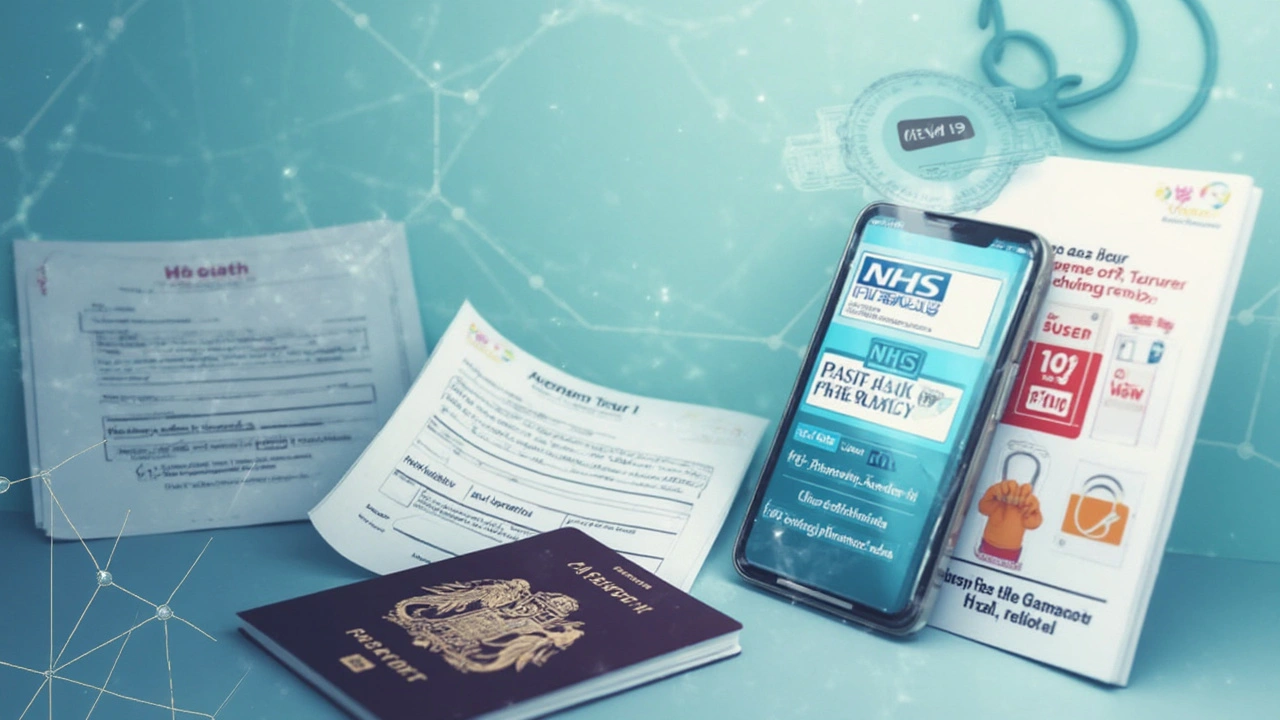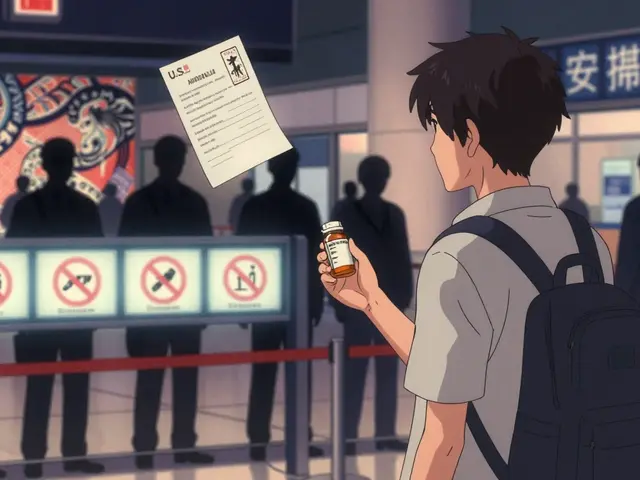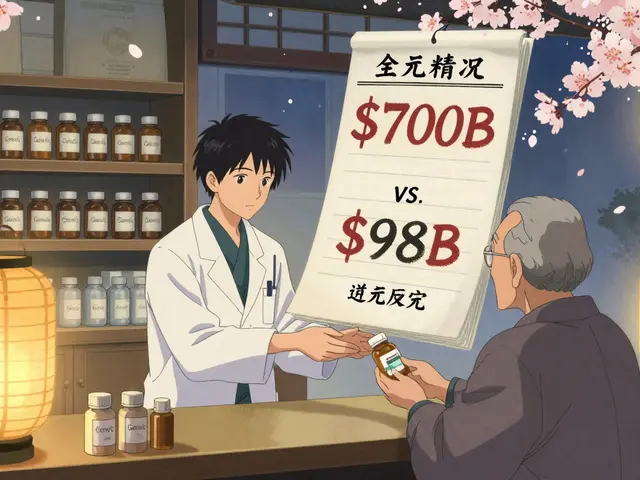The Explosion of Online Pharmacies in Canada—And the Hidden Dangers
Buying medication from the comfort of your home sounds like a modern miracle. No awkward waits at the counter or surprise shortages at your local drugstore. Canadian online pharmacies are everywhere these days—there are thousands of sites offering everything from routine prescriptions to specialty meds, shipping straight to your door. It’s easy to see why people love the convenience and the savings. But not every online pharmacy is as legitimate as it looks. Some fly under the radar, cutting corners or even selling fake or dangerous drugs. A study by the National Association of Boards of Pharmacy found over 95% of online pharmaceutical retailers globally are operating illegally or selling substandard products.
Even Health Canada, the country’s health watchdog, warns consumers about scams and poorly regulated sellers. The stakes are high: counterfeit or mishandled medication can lead to treatment failure, dangerous side effects, or even worse. That’s why knowing how to spot the warning signs—and what to look for in a truly safe online pharmacy—matters more than ever. Sites can look professional, with convincing seals and official-sounding names, but looks can be deceiving. Let’s break down the proven ways to spot a real, trustworthy Canadian online pharmacy so you’re never left guessing.
Your Safe Canadian Pharmacy Checklist: The Essentials You Can't Ignore
If you’re ready to click “order” on an online pharmacy, don’t rush. Slow down and walk through this checklist first. It might just save your health or wallet. Real pharmacies play by the rules, follow Canadian laws, and put your safety first—not their profits.
- Verify licensing and credentials. Legitimate Canadian online pharmacies display their provincial license numbers and are regulated by provincial pharmacy colleges. Look up these licenses yourself on your province’s regulatory website. If the pharmacy says it’s licensed but won’t show the license number or makes you dig for it, that’s a red flag.
- Check for the 'CIPA' seal. The Canadian International Pharmacy Association (CIPA) only accredits online pharmacies that meet its strict safety standards. You can check the official list on CIPA’s website. Real members will link you directly to their CIPA profile.
- Ask for a prescription—every time. Safe Canadian pharmacies require a valid prescription from a real doctor for prescription medicines. If a site offers to send you medication 'without a prescription' or claims you can fill out an online questionnaire instead, walk away.
- Find the pharmacist. By Canadian law, all licensed pharmacies must offer easy access to a registered pharmacist—by phone, email, or live chat—to answer questions about your medications. Try contacting them before you order. If you can’t reach a pharmacist, that’s a bad sign.
- Review the address and contact info. Real pharmacies have a physical address in Canada, not just a P.O. box or 'virtual office.' Suspicious sites may hide their address completely or list a generic contact form instead of a real phone number.
If any of these pieces are missing, think twice. According to recent Canadian Pharmacy Regulatory statistics, roughly one in five people have ordered medication online without checking for credentials—and more than a quarter of those reported issues with counterfeit drugs, delayed shipments, or compromised privacy.
How Encryption Protects Your Private Health Data (and Why It Matters)
Handing over your prescriptions and payment details online? Then encryption isn’t just a 'nice-to-have'—it’s absolutely crucial. The best online pharmacies use top-of-the-line encryption to lock down your personal data before it even leaves your device. That means your credit card info, home address, and prescription details stay private and protected while being sent and stored.
The gold standard is 256-bit SSL encryption—the same tech trusted by banks. You can spot this by the ‘https’ and the padlock symbol in your browser’s address bar. Click it to review the security certificate info. A real, secure site will list its certificate owner, duration, and issuing company without any weird errors or expired dates. Skip any site with only “http” (no ‘s’) or certificate warnings, as those may leave your info exposed to hackers. Over 70% of online pharmacy data breaches in Canada involved outdated or absent encryption. It’s wild how common and avoidable it is.
Look for a detailed privacy policy as well. This should list: what data the pharmacy collects, how they store and protect it, what they share with third parties, and your rights as a user. If the privacy policy is missing, vague, or copied from another site, that’s a red flag. Even a secure checkout can’t protect you from a company that sells your info to marketers or shady third parties. If you notice pop-ups or weird redirects while browsing, head for a safer site.

The Truth About Pharmacist Availability (and What That Means for Your Health)
Ever tried to get hold of a pharmacy customer service rep, only to be stuck in endless phone menus or chatbots? In Canada, real online pharmacies must offer prompt, human access to a licensed pharmacist. That’s not just a ‘nice touch’—it’s actually a legal requirement. Why does this matter so much? Because every prescription can come with risks, interactions, or questions that only a professional can explain. If a pharmacy dodges your questions, refuses to connect you to a pharmacist, or only offers generic email support, it may not be a real pharmacy at all.
Quit guessing. Here’s a practical tip: Before ordering, try out their pharmacist support. Ask a real medical question about a prescription you’re considering. Note how fast they respond, how in-depth the explanation is, and whether you speak to a credentialed pharmacist versus just a generic staff member. Legitimate sites pride themselves on service and want to prove their staff’s credentials. According to the Canadian Pharmacists Association, the average wait time to connect with a pharmacist from a certified online pharmacy shouldn’t be longer than 24 hours—most offer same-day service via chat or phone.
Pharmacist consultation shouldn’t stop after the sale. Real Canadian online pharmacies follow up on new or changed prescriptions, check for drug interactions, and give medication use tips—especially for complex regimens or high-risk meds. Beware of sites that get cagey about post-sale service or seem to lose interest once they have your payment.
Spotting Sneaky Red Flags: From Shady Domains to Fake 'Reviews'
Some unsafe pharmacies put a lot of effort into looking legit. They’ll copy and paste real logos, use stock photos of happy doctors, or seed fake reviews around the web. But there are always breadcrumbs if you know where to look. Here’s what to watch for:
- Strange or misspelled domain names. Real Canadian pharmacies invest in clear, reputable domains—not a mess of random letters or obvious typos of popular brands.
- Fake customer reviews. Suspicious sites often flood their pages with glowing testimonials, but rarely offer any way to verify their reviewers. If every review reads like an ad—it’s probably not legit.
- Unrealistic promises or prices. If a site says it can get you prescription meds overnight, for prices ‘90% off’ compared to Canadian retail, something’s off. Sometimes, these sites aren’t even shipping from Canada—despite what their homepage claims.
It can help to do some outside digging. For a look at how authentic review platforms break down real-world experiences, check out these detailed CanPharm.com reviews. Seeing what others found—both good and bad—gives you a stronger sense of who to trust when making a decision.
And don’t be fooled by seals and badges alone. Some online pharmacies simply copy logos of Canadian regulatory bodies or well-known associations, hoping you won’t check. Always click through on badges to make sure they link to a real, official site or list—and never just a .jpg image on the pharmacy’s own page.
Here’s a handy table of common red flags and what they really mean:
| Red Flag | What It Likely Means |
|---|---|
| No verifiable license/physical address | Not a real Canadian pharmacy, likely illegal |
| Prescription not required for Rx | Disregard for your safety and Canadian law |
| No live pharmacist support | Not legitimate, service or safety compromised |
| Only accepts payment by wire transfer/crypto | Poor consumer protection, high risk of scam |
| Site has many grammar/spelling errors | Often linked to quick-copy foreign scam operations |
| Too good to be true prices | Counterfeit or mishandled medication risk |
Taking Control: Your Next Steps for Safe Online Pharmacy Shopping
The appeal of Canadian online pharmacies is clear—especially for anyone dealing with recurring meds, busy schedules, or high drug costs. But all those perks disappear if your order turns out to be unsafe, unreliable, or illegal. The fix? Stay skeptical, check every box on the safe pharmacy checklist, and never trade real safety for the illusion of convenience.
Get familiar with your province’s pharmacy regulator listings and CIPA’s directory. Bookmark your favorite safe pharmacies, but check their credentials regularly in case anything changes. Keep your browser security updated and trust your gut if a site or offer seems off. Remember, pharmacists should be your partners—not faceless order processors—and your health info deserves bank-level protection.
And above all, don’t feel pressured into a quick purchase—no matter how urgent that prescription might feel. Safe pharmacies want educated, empowered customers. Those extra few minutes spent checking a license number or chatting with a pharmacist? That’s what keeps your health, privacy, and hard-earned cash where it belongs: safe and sound.








Shilah Lala
May 5, 2025 AT 10:20Tanuja Santhanakrishnan
May 5, 2025 AT 18:22STEVEN SHELLEY
May 6, 2025 AT 06:21Stuart Palley
May 7, 2025 AT 01:07Lorena Cabal Lopez
May 7, 2025 AT 01:13Sarah Schmidt
May 7, 2025 AT 20:01Cecil Mays
May 8, 2025 AT 15:11Susan Karabin
May 8, 2025 AT 16:52Natalie Eippert
May 9, 2025 AT 04:23Karen Werling
May 10, 2025 AT 03:30Christy Tomerlin
May 10, 2025 AT 13:32Tanuja Santhanakrishnan
May 10, 2025 AT 16:53Raj Modi
May 11, 2025 AT 07:05Billy Gambino
May 11, 2025 AT 11:35